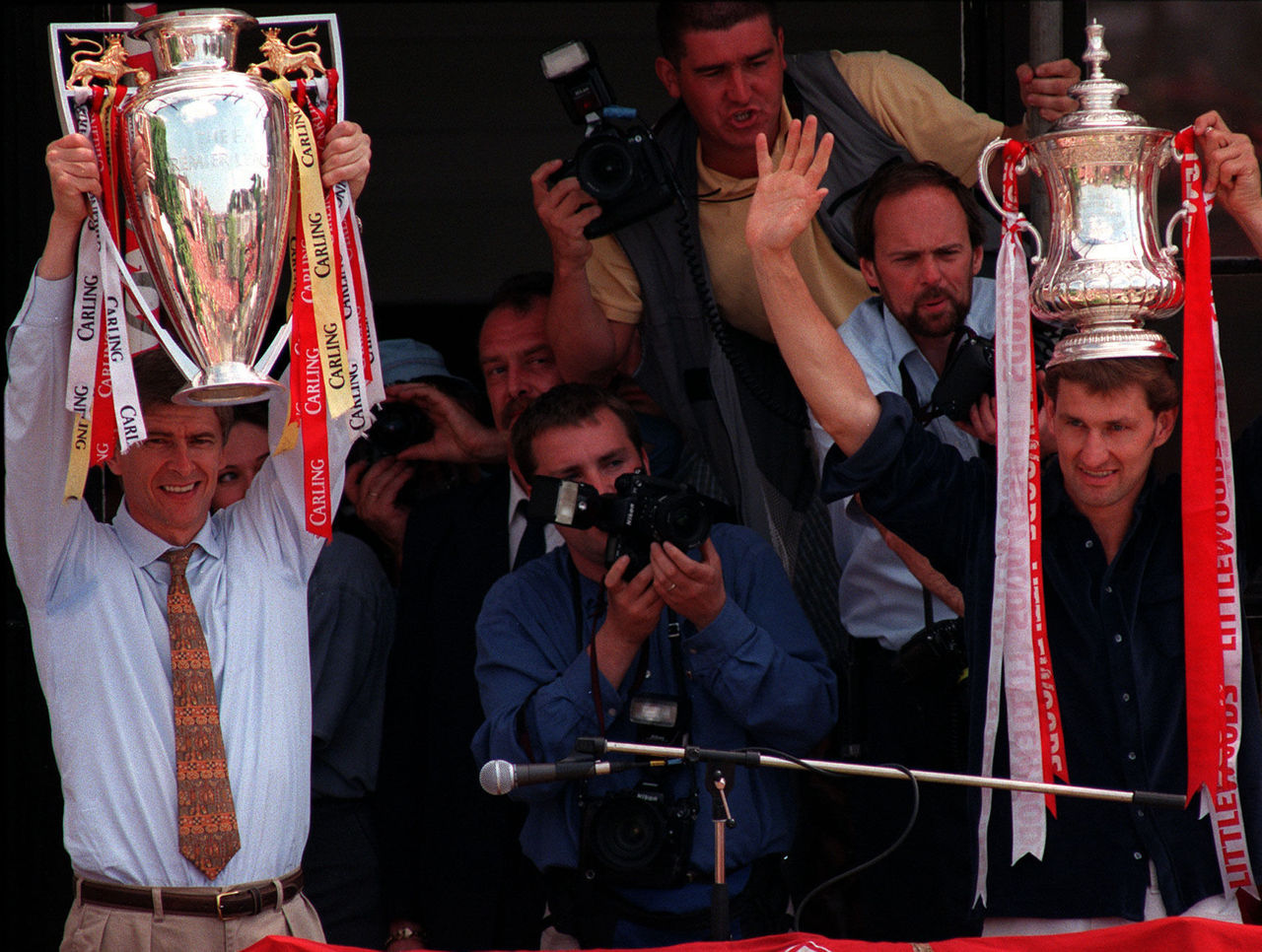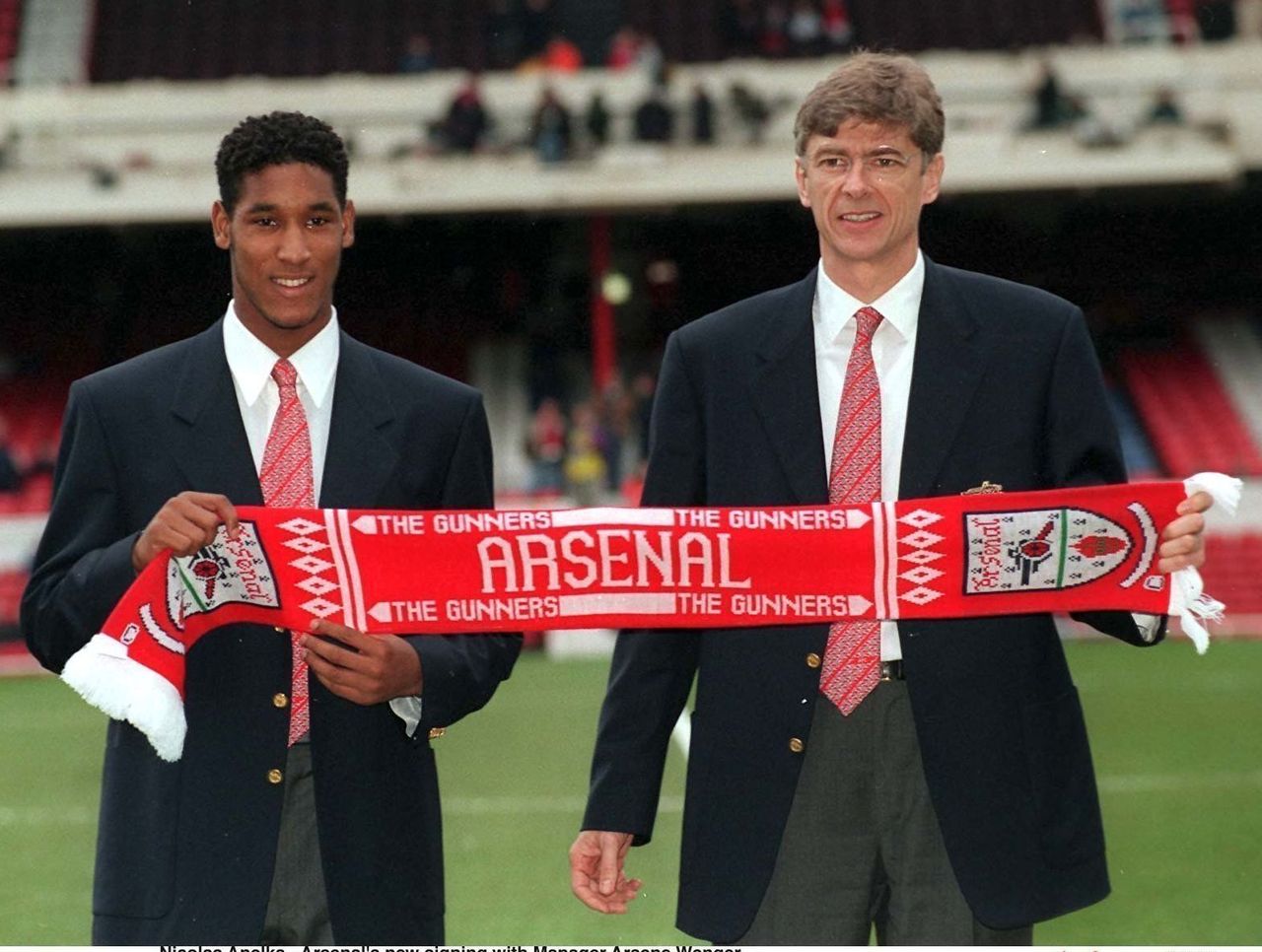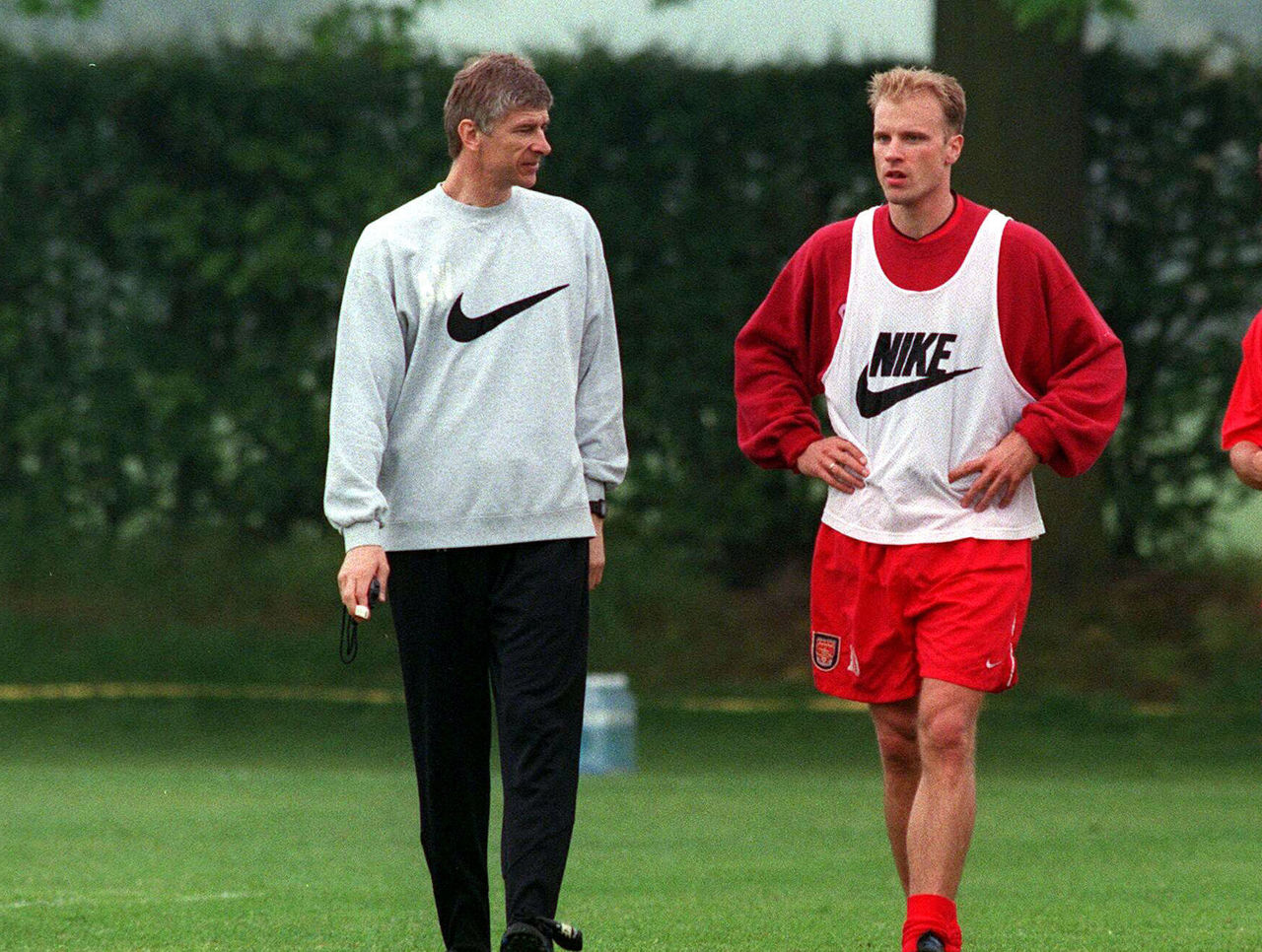20 seasons and counting: Arsene Wenger's legacy at Arsenal
Nineteen years ago today, Arsenal unveiled gaffer Arsene Wenger following the dismissal of Bruce Rioch, to the surprise of pundits and supporters alike.
Rumours had suggested Rioch's boring brand of kick-about would be replaced by a high-profile candidate in the mold of ex-Barcelona legend Johan Cruyff, as bookmakers fancied the Dutch advocate of Total Football over some of the other names being bandied about.
To the consternation of Arsenal fans, a near-unknown and quiet-talking angular Frenchman was handed the position on Sept. 30, 1996, and revealed the following day - to the bewilderment of everybody but the club's puppet master, David Dein.
Despite a seven-year spell at the helm of Monaco that featured a Cup Winners' Cup runner-up medal, and a Coupe de France title sandwiched between two second-place finishes and a Ligue 1 title in 1988, Wenger's appointment following a spell with Japanese outfit Nagoya Grampus Eight caught most off-guard.
In the nineteen years that followed, Wenger turned himself from a surprise into a club legend. Wenger transformed Arsenal from George Graham and Rioch's "boring, boring Arsenal" ethos into one of brilliant attacking football and the discovery of seemingly unknown talents-cum-world-beaters.

The emphasis Wenger placed on a fluid style of football was soon adopted by other Premier League sides, as were his training methods and insistence on the importance of nutritional guidelines for players. Gone were the days of pints and pies the night before the match.
"I lived for two years in Japan and it was the best diet I ever had," Wenger said in a 2014 interview. "Their diet is basically boiled vegetables, fish and rice. No fat, no sugar. You notice when you live there that there are no fat people. I think in England you eat too much sugar and meat and not enough vegetables."
Wenger's influence wasn't limited to the pitch or in the dressing room: The lanky Strasbourg-born boss also helped shift attitudes concerning foreign managers and players in England. Of course, winning the double in his first season with the north London club didn't hurt his case.
Names like Robert Pires, Thierry Henry, and Patrick Vieira are emblematic of the maturation of the Premier League, which today can boast the honour of being Europe's most varied and multi-ethnic collection of top-flight players. Wenger did receive a fair bit of flack for this in the past, notably after naming an entirely foreign squad for a home tie with Crystal Palace in 2005. That lineup included six Frenchman, two Dutchmen, an Ivorian, a Cameroonian, a Swiss, a Brazilian, and a German player.

With an economics degree from the University of Strasbourg, Wenger has long valued all levels of Arsenal's construct, from the Academy sides and foreign scouts right up to the first-team squad. He is a pragmatic thinker who chooses his words wisely, and is an unabashed student of the game.
His influence on Arsenal is of such magnitude that after 20 years at the helm he has become one with the club, synonymous with its successes, and also a lightning rod for even the most inane criticism.
In an era where the likes of Roman Abramovich and Sheikh Mansour scooping up and transforming beleaguered top-flight clubs with a seemingly unending influx of cash, Wenger put an emphasis on resourceful spending and the development of youth within the club.
Oft-criticised for his hard-headed approach to transfers that's sometimes mistaken for a practice of penny-pinching, Wenger was miles ahead of UEFA's introduction of Financial Fair Play, where his spending was responsible and guarded in a time of reckless purchases.

Without picking up a shovel, the 65-year-old built the Emirates Stadium - a benchmark for the advent of new stadia - in 2006, regulating expenditures during that period to balance the debt of loans. Arsenal are now England's most financially sound outfit, ensuring prosperity, while some criticize Wenger for being a miser.
Criticism is never far from Wenger's reach, as the modern football supporter wants everything and they want it now. Never mind the fact the Frenchman completely transformed one of Europe's biggest clubs and also several elements of its biggest, most financially viable league - every error the man makes is exploited as if he doesn't bleed for the club.
Safe to say, nobody cares about the club as much as the man in his 20th year at the north London outfit's helm.
Those who are quick to criticize Wenger should have a gander at the Gunners' hated rival, Tottenham. During the Frenchman's tenure at Arsenal, the Spurs have had 15 managers, never finished above fourth, and have won a single trophy, the 2007-08 League Cup. They've also finished behind Arsenal in 20 of the Premier League's 22 seasons.
His failure to start Petr Cech in a disappointing continental loss, or his refusal to splash the cash for the sake of spending during a generation of senseless purchases, won't be his legacy. Rather, it's the six Community Shields, a record six FA Cups, three Premier League titles, a Champions League second-place finish, and an inconceivable unbeaten 2003-04 campaign - the team was coined "The Invicibles" - that Wenger will be remembered for.
HEADLINES
- Canada's Olivia Smith joins Arsenal in reported world-record transfer
- Latest transfer news and rumors: Man Utd improve Mbeumo offer again
- Asllani: Sweden 'always flying under the radar'
- Crystal Palace chairman: We're appealing Europa League demotion
- Djordje Petrovic leaves Chelsea for Bournemouth in reported £25M move